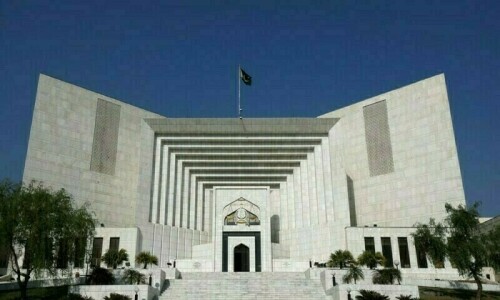
WRITERS, poets and creative artists are geniuses, but then there goes a famous aphorism that says there is a thin line between genius and madness. Psychologists have always been very keen to discover the connection between creativity and mental disorder.
Sigmund Freud’s psychoanalysis technique, based on study of unconscious mind — also used for the treatment of mental illness — influenced literary criticism as well and gave rise to a school of literary criticism known as psychological criticism. The psychological school of criticism avails itself of Freudian psychoanalysis, surmising that the contents and context of a literary text can be analysed from psychology’s point of view, discovering the childhood influences and unconscious minds of the writers and the characters they create in their literary works.
But psychological criticism is not limited to Freudian literary interpretations and it employs theories other psychologists floated, too, such as, Carl Jung, Alfred Adler and some others. Ernst Jones, a Welsh psychoanalyst, is known for his psychological study of William Shakespeare’s Hamlet, albeit Jones was much impressed by Freud and his analysis too was based on a concept developed by Freud. Jones gave the explanation for Hamlet’s mysterious and baffling behaviour and according to him the inexplicable behaviour was a consequence of Oedipus complex. Dr Asif Farrukhi once analysed Muhammad Husain Azad’s personality and said that Azad was suffering from schizophrenia as he had cooperated with the British, though they had killed his father Moulvi Muhammad Baqar, creating thereby symptoms of a split personality. As we know, Azad wrote some highly imaginative literary pieces but remained almost insane during last 20 years of his life.
In Urdu’s modern day criticism, an important name that is often associated with psychological criticism is Dr Amjad Tufail. In his article Urdu Mein Nafsiyati Tanqeed Ka Jaeza (a survey of psychological criticism in Urdu), he says that the ambit of psychological criticism is quite vast and it takes into account the creation, the creator, the act of creation and impact on the reader while analysing literary works. During the process, it not only considers empirical, historical and descriptive aspects but also different schools of psychology and various theories proffered by different psychologists are taken care of. But, in Urdu, laments Amjad Tufail, only psychoanalysis is stressed while discussing texts from a psychology’s point of view and this only betrays the deficient knowledge on part of some of our critics.
Appreciating Dr Mahmoodul Hasan Rizvi’s critical acumen, Amjad quotes Rizvi who has successfully tried to determine the periphery of psychological criticism: the stages through which a creator passes through during the act of creation; the expression of human psychology in the works created, which can be either individualistic or collective; and the critic’s own psychological stimulus while measuring the literary value of a text.
Discussing some of the critics of Urdu, whose critical works can be termed as psychological criticism, Amjad Tufail names them: Mirza Hadi Ruswa, Abdur Rahman Bijnori, Miraji, Rafiuzzaman Khan, Mazher Aziz, Prof Hizbullah, Waheed Qureshi, Riaz Ahmed, Hasan Askari, Sajjad Baqar Rizvi, Saleem Ahmed, Dr Muhammad Ajmal, Ibn-e-Fareed, Saleem Akhter and some others. In fact, Amjad Tufail himself is also considered one of the critics evaluating literary texts on the basis of psychological theories.
Amjad Tufail, a critic and academic from Lahore, holds a Master’s and a PhD in Psychology and has been teaching the subject and analysing literary works for over 30 years now. But beneath a psychologist’s scientific mind concealed is an artistic soul, deeply involved in finer things, such as literature, philosophy and cultural issues. What sets Amjad Tufail apart is his keenness for social and cultural phenomena as well as psychological notions. When he analyses literary works, his commitment to the society he lives in and its traditions does not waver and he does not mince his words while taking to task those who base their works on some theories negating the very atmosphere they breathe in.
For instance, in his article discussing a book trying to establish that “the human mind cannot be satisfied until the existence of God is finally confirmed with the logical and scientific reasoning”, Amjad Tufail does not bother to cloak his thoughts in less offensive terms and dissects the faulty assumptions presented in a scientific garb. This article, and some others conveying his signature tone, that is, assured and based on logic, is included in his book Ham Asr Urdu Tanqeed (Contemporary Urdu Criticism).
Lahore’s Sang-i-Meel has done a fine job by bringing out five books of Amjad Tufail, all at once. The other four being: Ham Asr Urdu Novel, Ham Asr Urdu Afsana, Ham Asr Urdu Shaeri and Ham Asr Aalmi Adab. The set of books offers a complete picture of Urdu’s contemporary literary scene with its socio-political background and a glance over global literature.
Published in Dawn, April 8th, 2024













































Dear visitor, the comments section is undergoing an overhaul and will return soon.